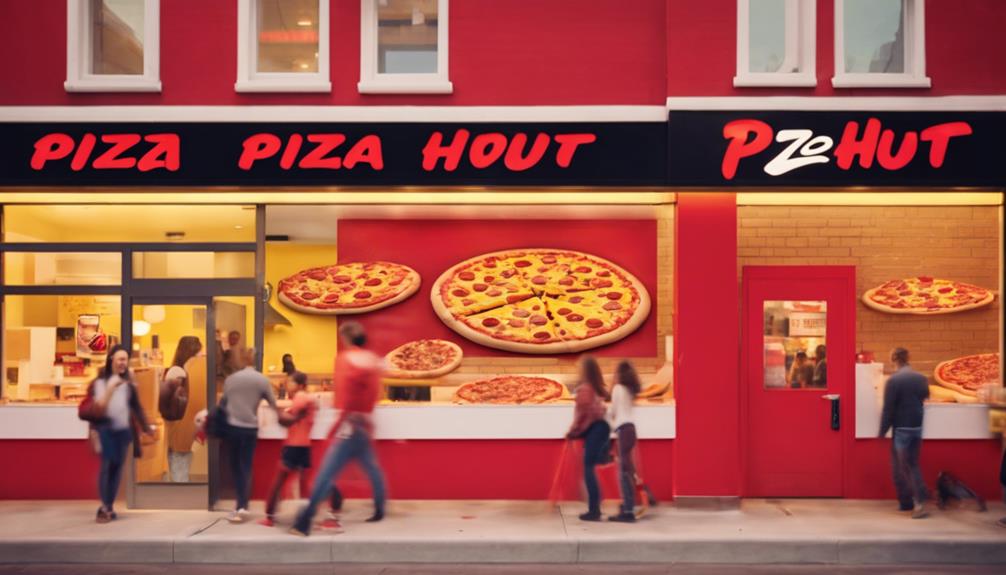Senior care franchises are making big strides in supporting the aging population and empowering entrepreneurs. They provide crucial services such as home care and senior living placement, offering lucrative business opportunities. With startup costs varying from $60,000 to over $1.3 million, potential franchisees can select options that suit their financial capabilities. These franchises come with robust support systems, including training, marketing, and continuous education, to ensure caregivers provide top-quality, compassionate care. By prioritizing meaningful relationships and the needs of the community, these businesses drive success while improving the lives of older adults. There is a lot more to learn about this impactful industry.
Key Elements

When exploring senior care franchises, understanding the key elements is vital.
This includes a thorough company overview, insights into the business model, and essential information for prospective franchisees.
Company Overview
A thorough company overview of senior care franchises highlights their core services, investment requirements, and support structures that cater to a growing market.
These franchises primarily focus on providing essential services such as home care, senior living placement, and consulting.
Initial investments can range from $60K to over $1.3M, depending on the franchise type and services offered. Financial flexibility plays an important role in franchise selection, as potential owners assess their investment capabilities.
Additionally, robust support resources, including training, marketing materials, and networking opportunities, help franchisees navigate the industry effectively.
The combination of extensive services and strong support systems positions senior care franchises as viable business opportunities in today's aging population landscape.
Business Overview
Senior care franchises offer a diverse range of services tailored to meet the needs of an aging population, making them a compelling option for aspiring business owners. These franchises typically focus on essential areas such as in-home care, senior living placement, and companionship services.
With initial investments ranging from $60K to $199K, there's a suitable option for various financial capabilities. Franchisees benefit from established brand recognition and extensive support, including training and marketing resources.
The growing demand for senior care services reflects a lucrative market opportunity. By choosing the right franchise, entrepreneurs can't only achieve financial success but also make a meaningful impact on the lives of seniors and their families, fostering a sense of community and support.
Information for Franchisees
Franchisees seeking to enter the senior care industry need to understand key elements such as initial investment requirements, support systems, and market demand.
Initial investments can range considerably; some franchises start as low as $60K, while others may exceed $200K. Understanding the financial commitment is vital for prospective franchisees.
They should also evaluate the support systems each franchise offers, including training, marketing materials, and ongoing operational guidance.
Additionally, evaluating market demand in their area will help determine potential profitability.
Franchisees must consider their personal investment capabilities and analyze local competition to make informed decisions.
With the right information, they can successfully navigate the complexities of the senior care franchise landscape.
Company Overview

The company overview of senior care franchises highlights their inception, key milestones, and commitment to quality care.
It also examines the executive team's experience and how these factors shape the competitive landscape.
Understanding these elements is essential for potential franchisees looking to invest in this growing industry.
Franchise Inception and Milestones
Established in the early 2000s, various senior care franchises have rapidly evolved to meet the increasing demand for home care services across the nation.
Many of these franchises began with a singular focus on nonmedical assistance, gradually expanding their services to include medical care and senior living placement options.
As the industry matured, key players like CareMinders and CarePatrol emerged, establishing strong brand recognition and support systems for franchisees.
Milestones in this sector often involve the opening of new locations, achieving operational efficiency, and garnering positive community feedback.
Each franchise endeavors to create a solid foundation through training programs, marketing support, and ongoing education, ensuring that franchisees can effectively contribute to enhancing the quality of life for seniors.
Commitment to Quality Care
Quality care remains a top priority for senior care franchises, ensuring that each service meets the highest standards to enhance the well-being of seniors.
These franchises implement extensive training programs for caregivers, focusing on both medical and non-medical support tailored to individual needs. They prioritize ongoing education to keep staff updated on best practices and emerging trends in senior care.
Emphasizing compassion and respect, these organizations foster a culture where caregivers are encouraged to build meaningful relationships with clients.
Rigorous quality assurance processes are in place, allowing franchises to continuously monitor and improve service delivery.
Executive Team Experience
Senior care franchises benefit from an executive team with extensive industry experience, combining expertise in healthcare management and business operations to drive success.
This leadership team understands the unique challenges of the senior care sector and leverages their backgrounds to implement effective strategies. Their knowledge of regulatory compliance guarantees franchises adhere to the highest standards of care.
Additionally, they foster a culture of continuous improvement, encouraging innovation and best practices across all locations. With a focus on training and support, they empower franchise owners to thrive in their communities.
The executive team's commitment to quality not only enhances operational efficiency but also strengthens relationships with clients and families, ultimately improving the lives of seniors they serve.
Competitive Landscape Analysis
The competitive landscape in the senior care franchise industry features a diverse range of companies, each offering unique services and investment opportunities tailored to meet the growing demand for senior support.
Notable players include Age Advantage Home Care, CareMinders Home Care, CarePatrol, Careshyft, and Caring for People Services. These franchises focus on various aspects of senior care, from nonmedical home care to senior living placement services.
Initial investments range considerably, with options starting as low as $60K and reaching up to $199K, allowing potential franchisees to find opportunities that fit their financial capabilities.
With robust support systems, training resources, and marketing assistance, these franchises equip owners to succeed in a competitive market while addressing the essential needs of seniors.
Brand Identity

In the competitive landscape of senior care franchises, brand identity plays a vital role in consumer awareness and trust.
Companies that commit to compassionate care often see proven success across diverse markets, establishing strong connections with clients.
Consumer Awareness in Senior Care
Building a strong brand identity in senior care is essential for attracting and retaining clients in a competitive market. Clear communication of values and services helps potential clients understand what sets a franchise apart.
Consistent branding across platforms—such as websites, social media, and marketing materials—reinforces trust and recognition. Franchises must also consider the emotional aspect of their brand, as families often seek compassionate and reliable care for their loved ones.
By highlighting success stories and testimonials, franchises can enhance credibility and foster consumer awareness. Additionally, educating consumers about available services and their benefits can further establish a franchise's authority in the industry.
Ultimately, a robust brand identity cultivates loyalty and drives business growth in senior care.
Commitment to Compassionate Care
Commitment to compassionate care shapes a franchise's identity and resonates deeply with families seeking trustworthy services for their loved ones. This dedication goes beyond providing basic assistance; it fosters genuine relationships built on empathy and respect.
Franchises that prioritize compassionate care cultivate an environment where clients feel valued and understood, easing the emotional burdens of both seniors and their families. They train their caregivers not just in skills, but in the art of kindness, ensuring that every interaction reflects their core values.
This unwavering commitment not only enhances the quality of life for seniors but also establishes trust and loyalty within the community. By embodying compassion, these franchises create a strong brand identity that stands out in the growing senior care market.
Proven Success in Diverse Markets
Proven success in diverse markets showcases how senior care franchises adapt their brand identity to meet the unique needs of various communities.
By tailoring services and marketing strategies, these franchises resonate with local populations, ensuring they address specific cultural, economic, and demographic factors.
For instance, some brands emphasize affordability, catering to budget-conscious families, while others highlight specialized services for seniors with unique health concerns.
This flexibility not only enhances brand loyalty but also drives growth in new regions.
Additionally, effective training and support systems enable franchisees to implement localized strategies successfully, further solidifying the brand's presence.
Collectively, these efforts illustrate the dynamic nature of senior care franchises as they thrive across different markets.
Information for Franchisees

Franchisees in the senior care industry can access a wealth of resources and support to guarantee their success and growth. They benefit from extensive training programs that equip them with essential skills and knowledge.
Marketing materials help promote their services effectively, while operational guidance streamlines day-to-day management. Networking opportunities enable franchisees to connect with peers, sharing insights and strategies.
Continuous education keeps them updated on industry trends, ensuring they remain competitive. Additionally, franchise support teams assist with regulatory compliance and best practices, fostering a strong foundation for sustainable operations.
Financial Requirements & Ongoing Fees

When considering a senior care franchise, potential investors need to look closely at the financial requirements and ongoing fees involved.
Initial investments can range from $60K to $199K, depending on the franchise type and services offered.
Additionally, franchisees should account for ongoing expenses such as a percentage of gross sales, marketing contributions, and operational maintenance costs.
60K to $199k Range
The financial requirements for senior care franchises in the $60K to $199K range offer a variety of options for aspiring business owners looking to enter a growing market. This range provides opportunities for those with varying budgets, ensuring access to essential services like nonmedical home care and senior living placement.
Franchise fees typically include an initial investment, ongoing royalties, and marketing contributions. New owners can expect to pay a percentage of their gross revenue as ongoing fees, which often support brand development and operational assistance.
Initial Franchise Investment Cost
Understanding the initial franchise investment costs and ongoing fees is vital for anyone considering entering the senior care market.
These investments vary greatly, with some franchises requiring as little as $60K, while others may demand upwards of $199K. Potential franchisees should carefully evaluate these financial requirements, which often encompass franchise fees, equipment costs, and initial marketing expenses.
Additionally, ongoing fees like royalty charges and advertising contributions can impact profitability. It's important for prospective owners to conduct thorough financial planning and guarantee they've sufficient capital to sustain operations during the initial growth phase.
This extensive understanding of costs will help franchisees make informed decisions and set their businesses up for success in the competitive senior care industry.
Percentage of Gross Sales
Analyzing the percentage of gross sales is critical for franchisees as they navigate ongoing fees and financial obligations in the senior care industry.
Typically, these franchises require franchisees to pay a royalty fee, often ranging from 5% to 8% of their gross sales. This fee supports brand marketing, operational resources, and ongoing training.
Additionally, some franchises may impose other fees, such as technology or software fees, which can further impact profitability. Franchisees should carefully evaluate these percentages, as they directly affect their bottom line.
Understanding these financial commitments helps franchisees create effective budgets and guarantees they're prepared for the demands of running a senior care business.
Proper financial planning is essential for long-term success in this growing sector.
Marketing Contribution Percentage
Marketing contributions typically range from 1% to 3% of gross sales, providing essential funding for brand promotion and marketing initiatives in the senior care franchise sector.
These contributions are essential, as they empower franchises to effectively compete within the industry and attract potential clients. By pooling resources, franchises can leverage collective marketing efforts, enhancing brand visibility and awareness.
This shared investment allows for the creation of thorough advertising campaigns, which can include digital marketing, print materials, and community outreach programs. Franchises benefit greatly from this approach, as it not only fosters a consistent brand image but also maximizes marketing impact across various regions.
Ultimately, these contributions are critical for sustaining growth and ensuring long-term success in the competitive senior care market.
Operational Maintenance Expenses
Operational maintenance expenses in senior care franchises often include ongoing fees such as royalties, marketing contributions, and costs associated with training and support. These fees can greatly impact a franchise's profitability, requiring careful financial planning.
Royalties typically range from 5% to 10% of gross revenue, while marketing contributions might add another 3% to 5%. Additionally, franchises often require ongoing training sessions, which may incur costs for materials and facilitators.
Franchise owners should also budget for operational expenses like licenses, insurance, and employee wages. By understanding these financial obligations, potential franchisees can better assess their investment and prepare for the ongoing costs associated with running a successful senior care franchise.
Financing Options

When considering senior care franchises, understanding financing options is essential.
Many franchises offer in-house funding solutions, while alternative funding sources can also support potential owners.
Additionally, government-backed loan providers can help ease the financial burden, making it easier to enter this growing industry.
In-House Funding Solutions Available
Many senior care franchises offer in-house funding solutions to help potential franchisees secure the necessary capital for their investment.
These funding options often include flexible payment plans and competitive interest rates designed to ease financial burdens. Franchisees can take advantage of tailored financing packages that align with their unique needs and investment capabilities.
Additionally, many franchises provide guidance through the application process, simplifying access to these funds. This assistance not only fosters a smoother shift into ownership but also empowers franchisees to focus on building their businesses.
Alternative Funding Sources Available
Exploring alternative funding sources can greatly enhance a franchisee's ability to finance their senior care business. These options extend beyond traditional loans, offering flexibility for new and existing franchisees.
They might consider crowdfunding platforms, where individuals can raise capital from a broader audience. Additionally, peer-to-peer lending networks can connect entrepreneurs with investors willing to fund their ventures.
Franchisees can also look into private investors or angel investors who are interested in supporting the senior care sector. Grants from nonprofit organizations focused on elder care might provide another avenue for funding.
Government-Backed Loan Providers
Government-backed loan providers offer essential financing options for franchisees looking to invest in senior care businesses.
These loans, such as those from the Small Business Administration (SBA), typically feature lower interest rates and longer repayment terms, making them attractive for aspiring franchise owners.
By securing government-backed loans, franchisees can access the capital needed for initial investments, which can range considerably across various senior care franchises.
This financial support not only helps reduce the burden of upfront costs but also encourages growth and sustainability in the senior care sector.
Franchisees can leverage these loans to build a solid foundation, ensuring they're well-equipped to provide quality care and support to an aging population.
Training & Support Offered

Franchise owners in the senior care sector benefit from extensive onboarding workshops that equip them with essential skills.
They also participate in continuous skill enhancement programs designed to keep them updated on best practices.
Additionally, franchises provide promotional materials and training resources to help owners effectively market their services.
Comprehensive Onboarding Workshops
Thorough onboarding workshops equip new franchise owners with essential training and support, ensuring they're well-prepared to navigate the senior care industry effectively.
These workshops cover critical topics such as operational procedures, compliance regulations, and customer service excellence. Franchise owners gain hands-on experience through role-playing scenarios and case studies, enhancing their understanding of real-world challenges.
Additionally, they receive valuable insights into marketing strategies specific to the senior care sector, empowering them to attract clients successfully. Networking opportunities with experienced franchisees further enrich the experience, fostering a sense of community.
Continuous Skill Enhancement Programs
Continuous skill enhancement programs offer franchise owners ongoing training and support, ensuring they stay updated with the latest best practices in the senior care industry.
These programs include workshops, webinars, and one-on-one coaching sessions designed to refine operational skills and improve service quality. Franchise owners learn about compliance, customer service, and innovative care techniques that enhance client satisfaction.
Additionally, regular assessments help identify areas for improvement, allowing owners to adapt quickly to changing market demands.
Networking opportunities with experienced professionals further enrich the learning experience, fostering a supportive community.
Promotional Materials and Training
Thorough promotional materials and training programs equip franchise owners with the tools they need to effectively market their services and enhance operational efficiency.
These resources include branded marketing collateral, digital advertising templates, and detailed guides on local outreach strategies.
Franchise owners receive in-depth training that covers essential topics like customer service, compliance, and operational best practices. This structured support guarantees they can navigate the complexities of the senior care industry confidently.
Additionally, ongoing training sessions keep owners updated on industry trends and innovations, fostering continuous improvement.
Networking opportunities with fellow franchisees further enhance their learning experience, providing valuable insights and shared success strategies that drive business growth and client satisfaction.
LEGAL AND REGULATORY

When exploring senior care franchises, understanding the legal documentation is essential for potential franchisees.
This paperwork outlines the rights and obligations of both the franchisor and franchisee, ensuring compliance with industry regulations.
Familiarity with these legalities helps franchisees navigate their responsibilities effectively and avoid potential pitfalls.
Franchise Legal Documentation Overview
When exploring senior care franchises, understanding the legal documentation is essential.
Franchisees need to review key sections that outline their rights and obligations, ensuring compliance with regulatory standards.
Clarity in these documents helps prevent misunderstandings and establishes a solid foundation for the business relationship.
Key Sections to Review
Understanding the key sections of franchise legal documentation is vital for potential investors in the senior care industry.
Investors should focus on the Franchise Disclosure Document (FDD), which outlines fees, obligations, and franchisee rights.
Additionally, reviewing the franchise agreement is essential, as it details the terms of the relationship.
Legal Obligations
Reviewing the legal obligations tied to franchise agreements is essential for prospective investors in the senior care sector to confirm compliance and protect their interests.
Key documents like the Franchise Disclosure Document (FDD) outline required disclosures, fees, and operational guidelines.
Understanding these legal frameworks helps investors navigate responsibilities, minimize risks, and confirm alignment with state and federal regulations in the senior care industry.
MARKET ANALYSIS

The market for senior care franchises is rapidly evolving, thanks in part to emerging technologies that enhance service delivery.
Senior citizens and their families increasingly seek innovative solutions that improve care quality and accessibility.
This shift presents a significant opportunity for franchise owners to tap into a growing demand for advanced senior care services.
Emerging Technologies in Senior Care
The senior care industry is witnessing a significant rise in telehealth adoption, reflecting a growing acceptance of remote healthcare solutions.
Market analysts project robust growth rates, signaling a shift in how care is delivered to older adults.
This trend not only enhances accessibility but also presents new opportunities for franchisees in the senior care sector.
Telehealth Adoption Rates Rising
Telehealth adoption rates in senior care are surging, driven by increased demand for accessible healthcare solutions.
As technology advances, more seniors embrace virtual consultations, enabling healthcare providers to deliver timely support.
This shift not only enhances patient care but also improves operational efficiency.
Consequently, senior care franchises are increasingly integrating telehealth services, solidifying their position in a rapidly evolving healthcare landscape.
Projected Market Growth Rates
Projected market growth rates for emerging technologies in senior care indicate a robust expansion as providers increasingly adopt innovative solutions to enhance service delivery and meet rising demand.
Analysts forecast significant growth, attributed to advancements in telehealth, AI, and robotics.
These technologies not only improve care quality but also streamline operations, making senior care franchises an attractive investment opportunity for prospective entrepreneurs.
Senior Citizens and Families
The senior demographic is rapidly evolving, with preferences shifting towards personalized care and community engagement.
Families often seek services that enhance their loved ones' quality of life while providing peace of mind.
Understanding these consumer preferences is essential for franchises aiming to meet the needs of this growing market.
Senior Demographics and Preferences
Understanding senior demographics and preferences reveals essential insights into the growing market for senior care services.
As the population ages, more individuals aged 65 and older seek personalized care options.
Families increasingly value services that promote independence and well-being.
This shift highlights an expanding demand for diverse senior care solutions tailored to meet the unique needs and desires of this demographic.
Senior Care Consumer Preferences
Senior citizens and their families prioritize personalized care options that promote independence, safety, and well-being in the evolving landscape of senior care services.
They increasingly prefer in-home care solutions over traditional facilities, valuing emotional support and companionship.
Additionally, transparency in services and costs is essential, as families seek providers who understand their unique needs and can deliver tailored care experiences.
EXIT STRATEGY

When considering an exit strategy for senior care franchises, potential owners should explore franchise buyback programs that can simplify the selling process.
Additionally, franchise changeover assistance programs can provide valuable support during this critical phase.
These options guarantee a smoother changeover and can help maximize the investment's value.
Franchise Buyback Programs Available
Franchise buyback programs provide a viable exit strategy for franchise owners looking to shift out of their business while ensuring a smooth handover to new operators.
These programs allow owners to sell their franchises back to the parent company, often at a fair market value, alleviating the stress of finding a buyer independently.
By participating in buyback programs, franchisees can avoid prolonged changes and potential operational disruptions. This option becomes particularly appealing as owners consider retirement or new ventures.
Additionally, the buyback process is typically streamlined, with the franchisor assisting in the change to maintain brand integrity and continuity of service.
Franchise Transition Assistance Programs
Owners looking to exit their business can benefit from Franchise Transition Assistance Programs, which provide structured support for a smooth handover to new operators.
These programs are designed to ease the shift process, ensuring that both the outgoing and incoming franchisees understand their roles and responsibilities. They often include training sessions, operational manuals, and ongoing support to facilitate a seamless transfer of knowledge and client relationships.
By utilizing these programs, owners can maximize their business's value while minimizing disruptions to service. Additionally, franchise networks typically help connect sellers with qualified buyers, increasing the chances of a successful sale.
ADDITIONAL RESOURCES

When exploring senior care franchises, it's imperative to have access to reliable resources.
Common questions about franchise operations can be clarified through dedicated inquiry channels, and networking events can provide valuable connections.
These additional resources help potential franchisees make informed decisions and build a supportive community.
Common Franchise Questions Answered
Often, potential investors have specific questions about the senior care franchise landscape that can help them make informed decisions.
Common inquiries include the range of initial investments, which can vary from $60K to over $1.3M, depending on the franchise type. Investors often wonder about potential returns, support systems, and training programs available through franchises.
Many also seek clarity on market demand for senior care services in their area and competition levels. Understanding franchise fees, ongoing royalties, and contractual obligations is essential, too.
Franchise Inquiry Email Address
Franchise inquiries can be directed to specific email addresses provided by each franchise, ensuring potential investors receive timely and relevant information. These email contacts serve as a direct line for individuals interested in exploring franchise opportunities in the senior care sector.
By reaching out, prospects can ask questions about investment requirements, support systems, and operational details unique to each franchise. Most franchises encourage inquiries to help clarify any uncertainties and provide tailored information based on individual circumstances.
Additionally, these email addresses often lead to valuable resources, including brochures, franchise disclosure documents, and access to webinars. This streamlined communication process helps foster informed decision-making for those looking to invest in senior care franchises.
Franchise Expos and Networking Events
Attending franchise expos and networking events offers aspiring investors valuable insights into the senior care industry while connecting them with established franchise owners and industry experts.
These events provide an excellent platform for learning about various franchise options, investment requirements, and market trends. Investors can engage in meaningful discussions with successful franchisees, gaining firsthand knowledge of operational challenges and best practices.
Additionally, networking events foster connections that can lead to mentorship opportunities and collaborative ventures. Participants can also access informative resources that cover training programs and support systems available within different franchises.
How Can CPR Cell Phone Repairs Empower Lives Through Senior Care Franchises?
Cpr cell phone repairs offer senior care franchises the opportunity to empower lives by providing convenient and reliable mobile phone repair services. With access to fast and affordable repairs, seniors can stay connected with loved ones and access important resources, enhancing their quality of life.
Conclusion
Investing in senior care franchises offers aspiring entrepreneurs a chance to make a significant impact while building a successful business.
With a growing demand for services tailored to the elderly, these franchises provide essential support that enhances the quality of life for seniors and their families.
By leveraging extensive resources and training, franchisees can navigate the market effectively, ensuring both personal fulfillment and financial success in this crucial industry.
Empowering lives through senior care isn't just a mission—it's a rewarding opportunity.









